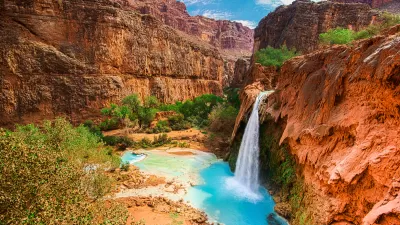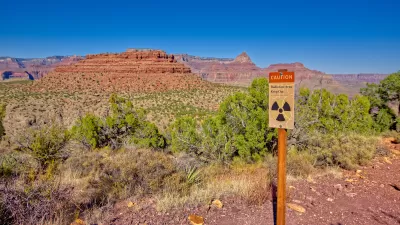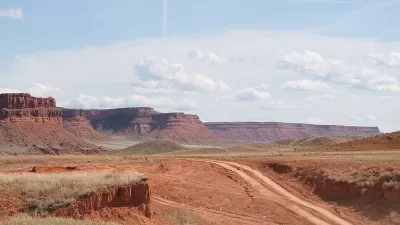The Department of the Interior is alleged to have generated electric energy by limiting water flow to the Grand Canyon, at the expense of the landmarks' ecology--despite having access to scientific findings that warned against doing so.
"The behind-the-scenes skirmish, which took place just days before President George W. Bush left the White House, highlights the sort of challenges Interior Secretary Ken Salazar will face in his new position. While Salazar declined to comment specifically on the Grand Canyon case because it is the subject of an ongoing legal battle, he said in an interview yesterday that he would emphasize 'the need to have sound science in all decision making in the Department of Interior.'
'Science should not be shoved under the table in order to deal with special interests that are knocking at the door,' said Salazar, adding that he will be looking at several last-minute decisions made by Bush before he left office. 'My point of view is, nothing is sacrosanct in terms of being reexamined.'
The federal government has spent about $100 million studying water flows on the Colorado River, and the studies indicate that the ecosystem would benefit from occasional short bursts of massive amounts of water along with more regular flows during the day and night. This pattern would mimic the river's natural fluctuations and deposit sediment on canyon beaches while also sustaining fish populations."
FULL STORY: Interior Ignored Science When Limiting Water to Grand Canyon

Maui's Vacation Rental Debate Turns Ugly
Verbal attacks, misinformation campaigns and fistfights plague a high-stakes debate to convert thousands of vacation rentals into long-term housing.

Planetizen Federal Action Tracker
A weekly monitor of how Trump’s orders and actions are impacting planners and planning in America.

In Urban Planning, AI Prompting Could be the New Design Thinking
Creativity has long been key to great urban design. What if we see AI as our new creative partner?

King County Supportive Housing Program Offers Hope for Unhoused Residents
The county is taking a ‘Housing First’ approach that prioritizes getting people into housing, then offering wraparound supportive services.

Researchers Use AI to Get Clearer Picture of US Housing
Analysts are using artificial intelligence to supercharge their research by allowing them to comb through data faster. Though these AI tools can be error prone, they save time and housing researchers are optimistic about the future.

Making Shared Micromobility More Inclusive
Cities and shared mobility system operators can do more to include people with disabilities in planning and operations, per a new report.
Urban Design for Planners 1: Software Tools
This six-course series explores essential urban design concepts using open source software and equips planners with the tools they need to participate fully in the urban design process.
Planning for Universal Design
Learn the tools for implementing Universal Design in planning regulations.
planning NEXT
Appalachian Highlands Housing Partners
Mpact (founded as Rail~Volution)
City of Camden Redevelopment Agency
City of Astoria
City of Portland
City of Laramie





























